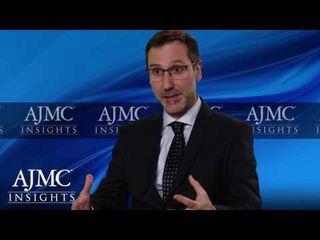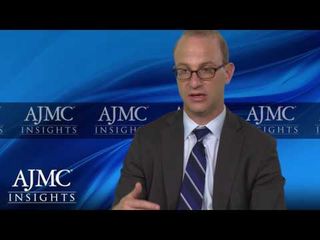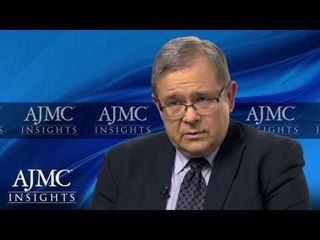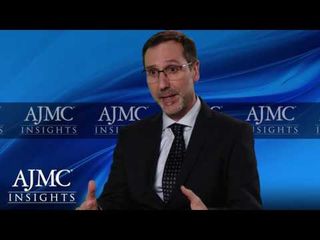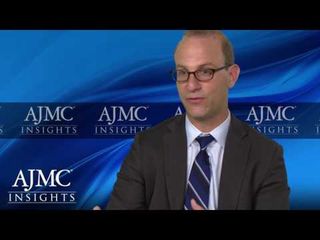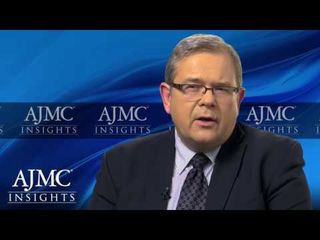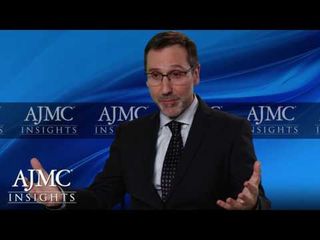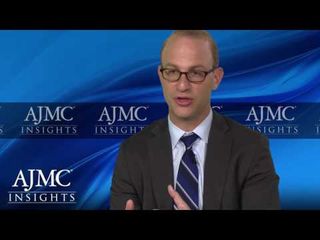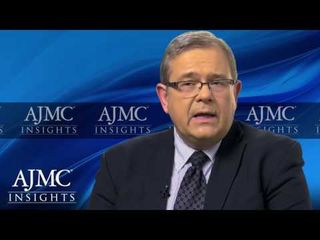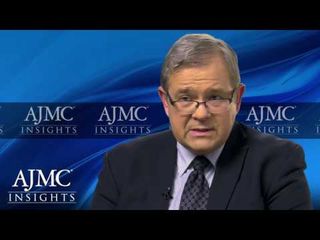
Clinical
Latest News
Latest Videos

CME Content
More News

Stacey W. McCullough, PharmD, senior vice president of pharmacy at Tennessee Oncology, discussed strategies for managing high-cost treatments, the impact of me-too drugs, and how clinical pathways can help physicians make treatment decisions at the point of care.

Despite recommendations that all healthcare workers are vaccinated against the flu, a study from the University of Michigan found that more than half of hospitals do not require healthcare providers get the influenza vaccine.

Within 3 months of being granted priority review, alectinib (Alecensa) has been approved for patients with advanced ALK-positive non-small cell lung cancer (NSCLC) whose disease has progressed or who cannot tolerate crizotinib
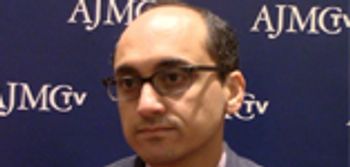
When considering how to rectify the rising prices of drugs, there are a number of interventions at multiple levels that can work to decrease costs to patients and the price of the drug, explained Yousuf Zafar, MD, MHS, associate professor in the Division of Medical Oncology at Duke Cancer Institute.

Solutions proposed by patient advocates and physicians to control costs provide approaches to valuing new drug/treatments compared with 1 or several prevailing standards of care. Increasingly, however, the debate over cost is transitioning to a debate over value.

On Tuesday, December 15, from 11 am to noon EST, The American Journal of Managed Care will host a tweetchat with Leah Binder, MA, MGA, president and CEO of The Leapfrog Group, about hospital quality ratings, patient safety, and healthcare outcomes.

Research conducted at the Yale Cancer Center has found that a procedure known as cavity shave margins could avoid unnecessary follow-up surgeries and save time and costs.

Research presented during a health outcomes session at the recently concluded annual meeting of the American Society of Hematology evaluated the influence of patients’ insurance status on clinical outcomes of CML.

The DigniCap Cooling System reduces the frequency and severity of alopecia during chemotherapy in breast cancer patients.

The workgroup that generated the guideline included experts in primary care, gynecology, surgical oncology, medical oncology, radiation oncology, and nursing, along with a cancer survivor who provided a patient perspective.

As Americans continue to struggle to afford their medical bills, and some newly insured under the Affordable Care Act find they can’t afford to use the coverage they purchased, finding the “right” health insurance plan is important.
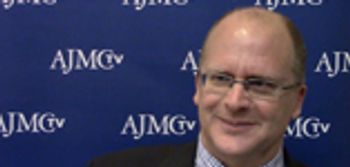
During the 5-year value-based insurance design demonstration in Medicare Advantage, the hope is that the models will show that lower cost-sharing for high-value services and providers meets the triple aim, explained A. Mark Fendrick, MD, director of the Center for Value-Based Insurance Design at the University of Michigan.

The characteristics of the patients a hospital serves play a huge role in determining the readmission fines, according to a study.

Primary clinical reviewers from the FDA and 2 clinician experts provided their unique perspectives on the safety, efficacy, and potential for clinical integration of 3 recently approved agents for multiple myeloma: daratumumab (Darzalex), ixazomib (Ninlaro), and elotuzumab (Empliciti).

The challenge with data in oncology is making sense of it and connecting it in a way that clinicians can make insights that inform the care they provide patients in real time, said Robert J. Green, MD, vice president of clinical strategy and senior medical director at Flatiron Health.

Results from a subgroup analysis of the phase 3 ENDEAVOR study and a phase 2 study in diffuse large B cell lymphoma patients were presented at the annual meeting of the American Society of Hematology.

A study of the prevalence and treatment of psoriasis in older Americans suggests the presence of economic and racial barriers.

A new test found a noninvasive, simple way to identify which patients are at risk for kidney disease progression.

Members from the American Society of Hematology (ASH)'s Choosing Wisely Task Force presented 5 recommendations on Monday, December 7, 2015, at the 57th annual meeting of ASH, in Orlando, Florida.

During a health outcomes session on the second day of the American Society of Hematology meeting, data presented from a study conducted at the University of Nebraska Medical Center suggested that the site of care bears a significant influence on the outcomes of patients with acute lymphoblastic leukemia.

What we're reading, December 7, 2015: Mylan is subpoenaed over pricing of generic doxycycline antibiotic products; Congressional hearing this week on drug pricing controversy; new superbug on the rise; and Obamacare penalty for being uninsured may not be enough to get people to sign up.

Two posters presented at the annual meeting of the American Society of Hematology discussed patient-reported outcomes measures and quality-of-life indicators as supportive tools for treatment in individuals being treated for acute myeloid leukemia and myelodysplastic syndrome.

While some of the misconceptions of palliative care have been cleared up over the years, it is still very much associated with end-of-life care, explained Judith Peres, LCSW-C, clinical social worker and health policy consultant.

Presenters at an education session, titled Patient-Reported Outcomes in Hematology, addressed the importance of embracing the patient perspective in healthcare delivery, on the second day of the annual meeting of the American Society of Hematology, being held December 5-8, in Orlando, Florida.

This week in managed care, an exclusive report on how Horizon Blue Cross Blue Shield of New Jersey's OMNIA plan will affect maternity patterns; a Senate investigation found Gilead Sciences knew its Sovaldi price was high; and World AIDS Day observes the progress made.
